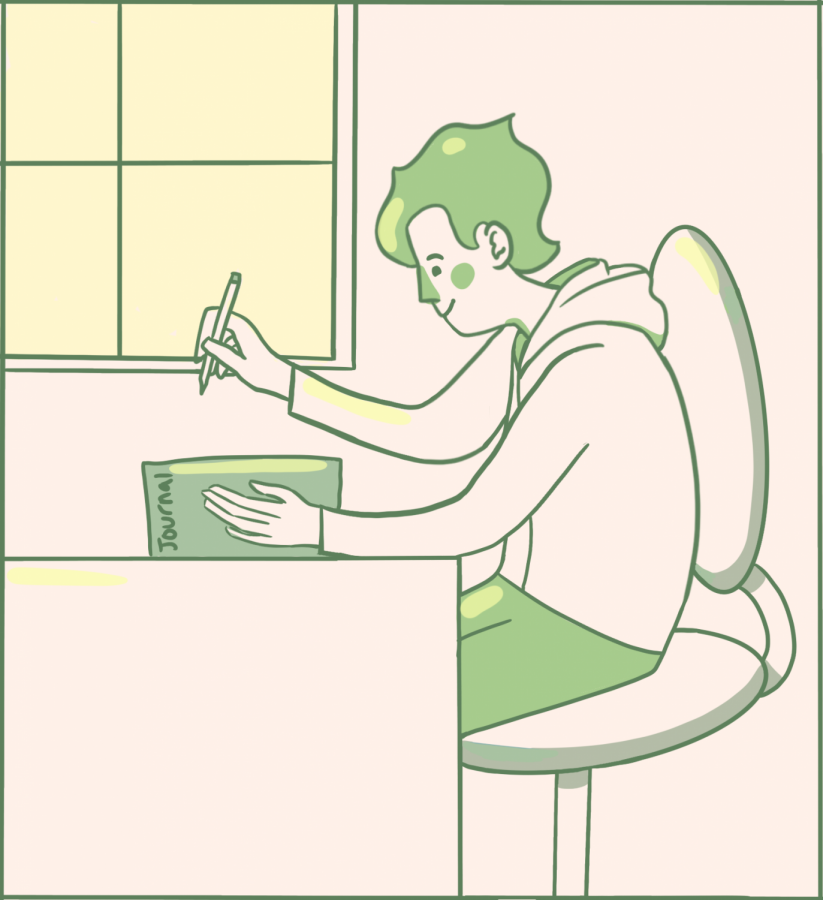Gratitude is a great way to improve your outlook on life
March 23, 2021
I think most people agree that it’s important to be grateful in life. Without gratitude, it’s exponentially harder to appreciate the things you already have.
I’m sure most of us can think of relatives or friends who would benefit from being more grateful, but it isn’t entirely clear how one goes about improving that.
At least until now.
This past week I stumbled upon a YouTube video titled “An Antidote To Satisfaction” created by the channel Kurzgesagt – In A Nutshell.
The video focused on studies in positive psychology, researching what we can learn from happy people.
According to the video, studies found that happy people often possess more “trait gratitude” than others, which was a term I’d never heard of. I was surprised to learn that a person’s general well-being could be traced back to their DNA, I had always imagined gratitude was a choice.
Trait gratitude is a scientific explanation for how much gratitude you are able to feel based on your DNA.
And for those who think well that’s just one video, great thought. I thought that too. So I decided to google “trait gratitude” and stumbled upon numerous PDFs from fancy universities spanning from the likes of the University of California, Berkeley to Harvard University stating the same fact.
Initially, this had me worried. What if I was born with low trait gratitude and I’m destined for discontent. What would I do about this?
Luckily, trait gratitude can be improved. According to a study done by UC Berkely the most effective way of improving one’s gratitude is journaling one to three times a week, listing five or more things you are grateful for.
Coincidentally this was something I’d been doing for the past year, starting when the pandemic first hit. I truly believe it’s been a major reason why I feel thankful for the year 2020 despite the world flipping upside down.
Up until March 2020, I had not been in the greatest place mentally. When I reflect upon some of my journal entries in those beginning months I can see how often I was verbalizing all the things that seemed to be going wrong.
It wasn’t until I was quarantined with a horrible case of salmonella after eating some iffy french toast that I finally started to look at what was going right.
I began to end all of my journal entries, especially the more negative ones, with a list of three things I was grateful for.
Sometimes it was simple things like the roof over my head or my family’s health. Other times it was a good hair day, learning where Middle C was on my piano keyboard or that NBA basketball had finally resumed.
I believe this approach has immensely affected how I deal with tough situations.
One of my better traits is my ability to look on the brighter side of things, but I wasn’t always like that. As I learned at my Uncle’s 50th birthday party from one of his friends, I actually used to be “quite emo.”
And now look at me, preaching about life’s little things for the Cynic. Who would have thought? I guess not Steve from the cookout.
Simple practices like these need to be taught. The fact that someone may feel dissatisfied with life in part because of a trait locked into their DNA was radical news to me.
The journaling technique definitely won’t solve all problems, and I understand people might find it corny to write something like “today I’m thankful for my morning cup of coffee,” but in doing so you’re reminding yourself life isn’t all that bad.
Learning strategies like this one shouldn’t rely on YouTube’s questionable algorithm to be taught to as many people as possible.
Maybe that’s a bit of an exaggeration on my part. You certainly can learn strategies like this in other ways but I don’t think those “ways” are very clear yet.
My high school had a wellness center which was great, but I think wellness should be a required class, not just a room most students used for free tea. Although I’d like that part to stay.
Our generation has seen an increase in anxiety and depression, education on subjects like gratitude is a perfect way to combat that. Unlike some other classes, it would also be directly applicable to student’s lives.
I know I would’ve had a much better shot at traversing the social minefield that was 7th grade if I had a class revolved around mental health rather than my required PE credit.
So, if you feel any inclination to do so, I encourage you to try out the journaling method for 2-3 weeks.
And if you are feeling the blues right now, know you are not alone. If you can find a way, whether it’s journaling or not, make sure to do something nice for yourself today. You deserve it.
This piece talks about strategies used to help stay appreciative. This practice should not be seen as a replacement for professional help for anyone who suffers from any mental health disorders.
Please seek support for yourself or for someone who you may be concerned about by contacting UVM’s Counseling and Psychiatry Services at 802-656-3340 (for students) or Invest EAP at (802) 864-3270 or toll free at 1-866-660-9533.








